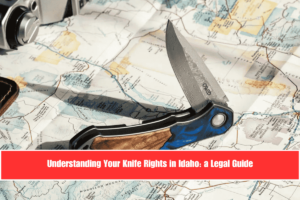Arizona law, backed by both state and federal court rulings, provides strong privacy protections for your cell phone during a traffic stop. Here’s what you need to know:
General Rule: Warrant or Consent Required
- Police in Arizona cannot search your phone during a traffic stop without either your consent or a valid search warrant.
- The Arizona Supreme Court and the U.S. Supreme Court (in Riley v. California) have recognized that the privacy interests in a cell phone are extremely high—comparable to the privacy of your home. This means police must generally obtain a warrant to search your device, even if you are under arrest.
Exceptions to the Warrant Requirement
There are limited circumstances where police may search your phone without a warrant:
- Voluntary Consent: If you agree to let the police search your phone, they do not need a warrant. You have the right to refuse this request.
- Exigent Circumstances: If there is an immediate threat to public safety or risk of evidence being destroyed (such as in cases of kidnapping or terrorism), police may be able to search your phone without a warrant.
- Border Searches: At international borders or airports, authorities have broader powers to search phones, but this does not typically apply to routine traffic stops.
Seizure vs. Search
- Police may seize your phone during an arrest or investigation to preserve evidence, but they still cannot search its contents without a warrant or your consent.
- If they seize your phone, they may hold it while they apply for a search warrant. You are not required to provide your passcode unless ordered by a court.
Your Rights During a Traffic Stop
- You are required to provide identification and comply with basic requests (like rolling down your window), but you do not have to answer questions about your phone or unlock it4.
- If asked, you can politely decline to unlock your phone or hand it over unless the officer presents a valid search warrant.
- If police search your phone without a warrant and without a valid exception, any evidence they obtain may be excluded from court under the exclusionary rule.
What to Do If Asked to Unlock Your Phone
- You have the right to refuse unless the police have a warrant specifically authorizing them to search your phone.
- If a warrant is presented, review it carefully to ensure it is valid (it should include your name, address, details of what is to be searched, a deadline, and a judge’s signature).
- If you are ordered by a court to provide your passcode and refuse, you could face contempt charges, but this is a separate legal issue and you should consult an attorney immediately.
Summary Table: Arizona Police and Cell Phone Searches
| Situation | Can Police Search Your Phone? | Can Police Seize Your Phone? | Must You Unlock It? |
|---|---|---|---|
| Routine traffic stop | No, unless you consent | No, unless arrested | No |
| With your consent | Yes | Yes | Yes, if you agreed |
| With a search warrant | Yes | Yes | Only if court orders it |
| Exigent circumstances | Possibly | Yes | Possibly (rare) |
| Border/airport search | Sometimes | Yes | Sometimes |
Key Takeaways
- Police cannot search your phone during a traffic stop in Arizona without a warrant or your consent.
- You have the right to refuse to unlock your phone or hand it over unless presented with a valid search warrant.
- If you are arrested, police may seize your phone but still need a warrant to search it.
- Always consult an attorney if you believe your rights have been violated or if you are ordered to provide your passcode.
Your digital privacy is strongly protected under Arizona and federal law—know your rights and exercise them if needed.
Sources
- https://www.suzukilawoffices.com/can-law-enforcement-search-your-cell-phone/
- https://arjashahlaw.com/blog/can-police-search-your-cell-phone-without-warrant-arizona/
- https://coolidgelawfirmaz.com/can-the-police-search-through-my-phone/
- https://www.arizonalawgroup.com/blog/can-a-police-officer-search-your-phone-without-permission/
- https://post.az.gov/sites/default/files/2024-02/2.3%20Search%20and%20Seizure.docx%20(3).pdf


















Leave a Reply